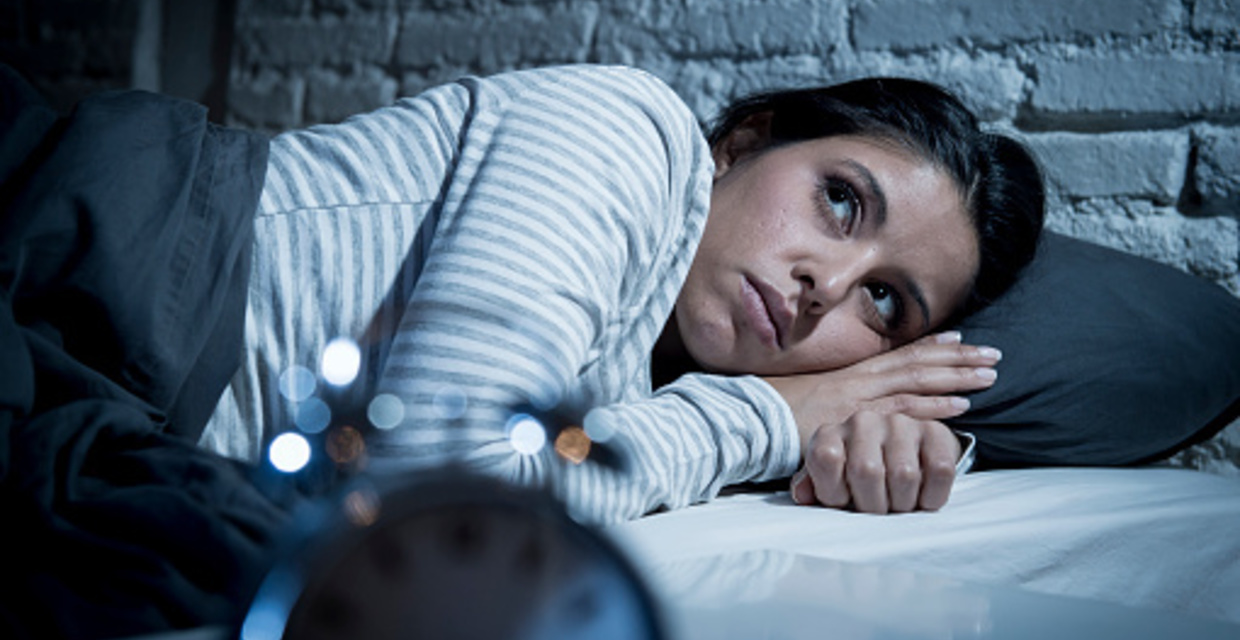Some abusers punish survivors for falling asleep, then for making mistakes when exhausted
Amanda Kippert
Domestic violence survivors often find they have trouble sleeping, and for obvious reasons. Being abused and controlled by one’s partner hardly equates to a restful night’s sleep.
But when an abuser goes out of their way to make sleep impossible for a survivor—not allowing a survivor to go to bed, punishing them with violence for falling asleep or waking them up at all hours of the night to inflict abuse—that’s something else entirely. Sleep deprivation is a sinister type of abuse, one that can cause serious short- and long-term effects on a survivor’s health.
When Sleep Equals Torture
“I am a pretty strong-willed person, but lack of sleep gets me off balance,” says survivor Deanna. While under the control of her abusive husband, Deanna says she was forever tired.
“I could never take a nap without being woken up. At night, he would want to have sex when I was sleeping.”
She knew her exhaustion would be something her abuser could use against her to inflict further abuse.
“When you are tired you are trying so hard to focus on what you are doing so you don’t mess up. Messing up around an abuser creates problems,” she says.
Survivor Amy Thomson retells a similar but even more violent experience. Her abuser would wait until she was sleep before attacking her in bed.
“I would awaken to thunderous pain at the back of my head. He wouldn’t even wait for me to recover from the blow … he would just begin screaming at me as he paced back and forth, sometimes with a [weapon] in his hand.”
When she thought he had allowed her to go back to sleep, as soon as she’d close her eyes, her abuser would elbow her side or strike her in the stomach. Sometimes, he would dump water over her head.
“I was expected to stay awake the entire day following the incident. If he caught me falling asleep on the couch, he would ambush me again.”
The Effects of No Zzzzzzs
Lundy Bancroft, acclaimed speaker and consultant on domestic violence, addresses sleep deprivation in his book Why Does He Do That?, calling it “a serious form of physical abuse, though it is not often recognized.” The effects are cumulative, he says—the longer you’re denied sleep, the greater the impact it can have on your life, listing depression, hopelessness and even a sense one is losing their mind as possible consequences.
According to Healthline, long-term effects of sleep deprivation can include:
- Trouble thinking and concentrating, including problem-solving
- Memory issues, such an inability to remember new information
- Weakened immune system that can result in you getting sick more often
- An increased risk for high blood pressure
- An increased risk for accidents
- Weight gain—the chemicals that tell your brain you’re full are compromised, resulting in an inclination to overeat
- Poor balance and coordination
- Increased risk of heart disease
Even short-term sleep deprivation has been linked to an increased risk of breast cancer, as well as other types of cancers, and Alzheimer’s disease, says Chris Brantner, certified sleep science coach at SleepZoo.com.
These are consequences that an extra cup of coffee can’t fix. What’s needed is, simply, more sleep.
“You’ll feel significantly better after a full night’s sleep, but one of the biggest problems is that your circadian rhythm is going to be all out of whack,” says Bratner. “So getting back to a point where you can get into a good sleep routine could take some time.”
For the survivors above, sleep only came when they were able to leave their abuser. The first step is to reach out for help. When you’re ready, visit our Find Help page and locate an organization near you. Advocates are typically available 24/7 to help you begin to create a safety plan, secure an order of protection and then, hopefully, begin to take care of yourself and your well-being.
When it’s safe to reclaim your rest, read our “6 Ways to Get Better Sleep” for tips on falling asleep with less stress.
Content retrieved from: https://www.domesticshelters.org/articles/identifying-abuse/sleep-deprivation-as-abuse?utm_source=newsletter&utm_medium=email&utm_campaign=sep07.

